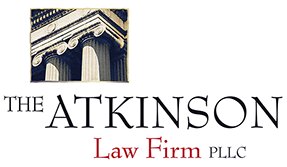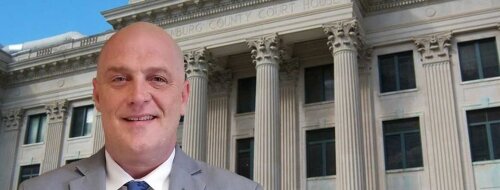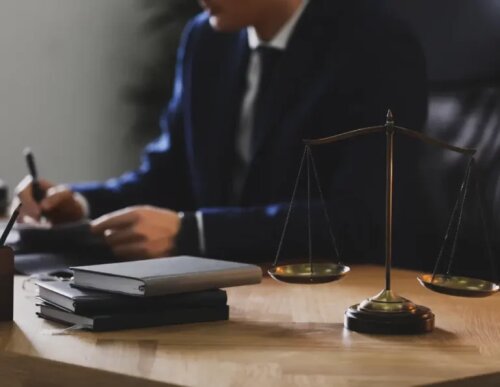Best Premises Liability Lawyers in North Carolina
Share your needs with us, get contacted by law firms.
Free. Takes 2 min.
Or refine your search by selecting a city:
List of the best lawyers in North Carolina, United States
About Premises Liability Law in North Carolina, United States
Premises liability law in North Carolina holds property owners and occupiers responsible for injuries suffered by visitors on their property, when caused by unsafe or defective conditions. These laws apply to commercial, residential, and public properties. The core idea is that property owners should keep their premises reasonably safe for people lawfully on their property. When a hazard exists and causes harm, and the owner was negligent in addressing or warning about it, the injured party may have a valid claim. Premises liability cases can involve slip and falls, inadequate maintenance, poor security, falling merchandise, dog bites, and other dangerous conditions on a property.
Why You May Need a Lawyer
Individuals may need legal help with premises liability cases in several situations. If you have been injured on someone else's property and believe the injury was due to dangerous conditions, getting a lawyer can help you understand your rights and the possibility of compensation. Common scenarios include slips and falls in stores or parking lots, injuries at rental properties, accidents due to poor lighting or broken stairs, or attacks due to negligent security. A lawyer can help investigate the case, gather evidence, communicate with insurance companies, establish liability, and negotiate or litigate on your behalf. Property owners and businesses may also need legal guidance if they are facing a premises liability claim.
Local Laws Overview
Premises liability laws in North Carolina have unique aspects that affect claimants:
- North Carolina follows the doctrine of contributory negligence, which means that if the injured person is found to be even one percent at fault for their own injury, they cannot recover damages.
- The law considers the visitor's legal status: invitee (such as a customer), licensee (a social guest), or trespasser. Property owners owe different duties of care depending on this status.
- There is a three-year statute of limitations for personal injury claims, including those arising from premises liability. This means you must file your lawsuit within three years of the incident.
- Special rules may apply for injuries involving children (attractive nuisance doctrine) and for government or municipal properties, where sovereign immunity and notice requirements can impact your claim.
- The burden of proof is on the injured party to show the property owner knew or should have known about the dangerous condition and failed to act.
Frequently Asked Questions
What should I do if I am injured on someone else’s property?
You should seek medical attention right away, document the scene and your injuries through photos or video, get contact information for any witnesses, and report the incident to the property owner or manager. It is also wise to contact a premises liability lawyer as soon as possible.
Can I recover damages if I was partially at fault for my injury?
North Carolina’s strict contributory negligence law prevents you from recovering any damages if you are found even slightly at fault for your injury.
What types of compensation can I recover in a premises liability case?
You may be able to recover costs for medical bills, lost wages, pain and suffering, and other damages related to your injury, depending on the circumstances of your case.
Does the duty of care differ for different types of visitors?
Yes, property owners owe the highest duty of care to invitees, such as customers, a slightly lesser duty to licensees, and very minimal duty to trespassers, except for children or if the property owner willfully harms the trespasser.
What is an attractive nuisance?
An attractive nuisance is a hazardous condition or object on the property that may attract children who do not understand the risk, such as a swimming pool or abandoned machinery. Property owners may be liable for injuries to children under this doctrine.
How long do I have to file a premises liability lawsuit in North Carolina?
You typically have three years from the date of injury to file a lawsuit, but you should consult a lawyer as soon as possible to preserve evidence and meet any special deadlines.
What evidence is important in a premises liability case?
Photographs of the scene and your injuries, incident reports, witness statements, past complaints or repairs related to the hazard, surveillance footage, and your medical records are all important forms of evidence.
Are property owners always responsible for injuries on their property?
Not always. Property owners are not automatically liable. You must show that their negligence caused your injury and that they owed you a duty of care under the law.
Do I need a lawyer to handle a premises liability claim?
Premises liability cases can be complex, especially due to the contributory negligence rule in North Carolina. Having a lawyer increases your chances of a fair outcome and helps protect your rights.
What if I was hurt on government property?
Claims against government agencies have unique procedures and may be limited by sovereign immunity. Special notice and filing requirements apply. Consult a lawyer promptly if your injury occurred on public property.
Additional Resources
- North Carolina Judicial Branch - Provides information on the court system, case filing, and legal forms.
- North Carolina Bar Association - Offers lawyer referral services and educational material regarding legal rights.
- North Carolina Department of Insurance - Helpful for claims involving insurance disputes.
- North Carolina Department of Justice - Consumer protection resources, especially for renters or those injured in commercial establishments.
Next Steps
If you believe you have a premises liability case, your next steps are important:
- Get medical attention and keep records of your treatment.
- Preserve evidence from the scene and your injury.
- Write down everything you remember about how the accident happened.
- Notify the property owner or property manager about the incident.
- Consult a qualified premises liability lawyer in North Carolina. Many offer free consultations to assess your case and explain your legal options.
Timely action is crucial under North Carolina law, so do not delay seeking legal advice. An experienced attorney can help you navigate the complex rules of premises liability and work toward getting the compensation you deserve.
Lawzana helps you find the best lawyers and law firms in North Carolina through a curated and pre-screened list of qualified legal professionals. Our platform offers rankings and detailed profiles of attorneys and law firms, allowing you to compare based on practice areas, including Premises Liability, experience, and client feedback.
Each profile includes a description of the firm's areas of practice, client reviews, team members and partners, year of establishment, spoken languages, office locations, contact information, social media presence, and any published articles or resources. Most firms on our platform speak English and are experienced in both local and international legal matters.
Get a quote from top-rated law firms in North Carolina, United States — quickly, securely, and without unnecessary hassle.
Disclaimer:
The information provided on this page is for general informational purposes only and does not constitute legal advice. While we strive to ensure the accuracy and relevance of the content, legal information may change over time, and interpretations of the law can vary. You should always consult with a qualified legal professional for advice specific to your situation.
We disclaim all liability for actions taken or not taken based on the content of this page. If you believe any information is incorrect or outdated, please contact us, and we will review and update it where appropriate.
Browse premises liability law firms by city in North Carolina
Refine your search by selecting a city.

















